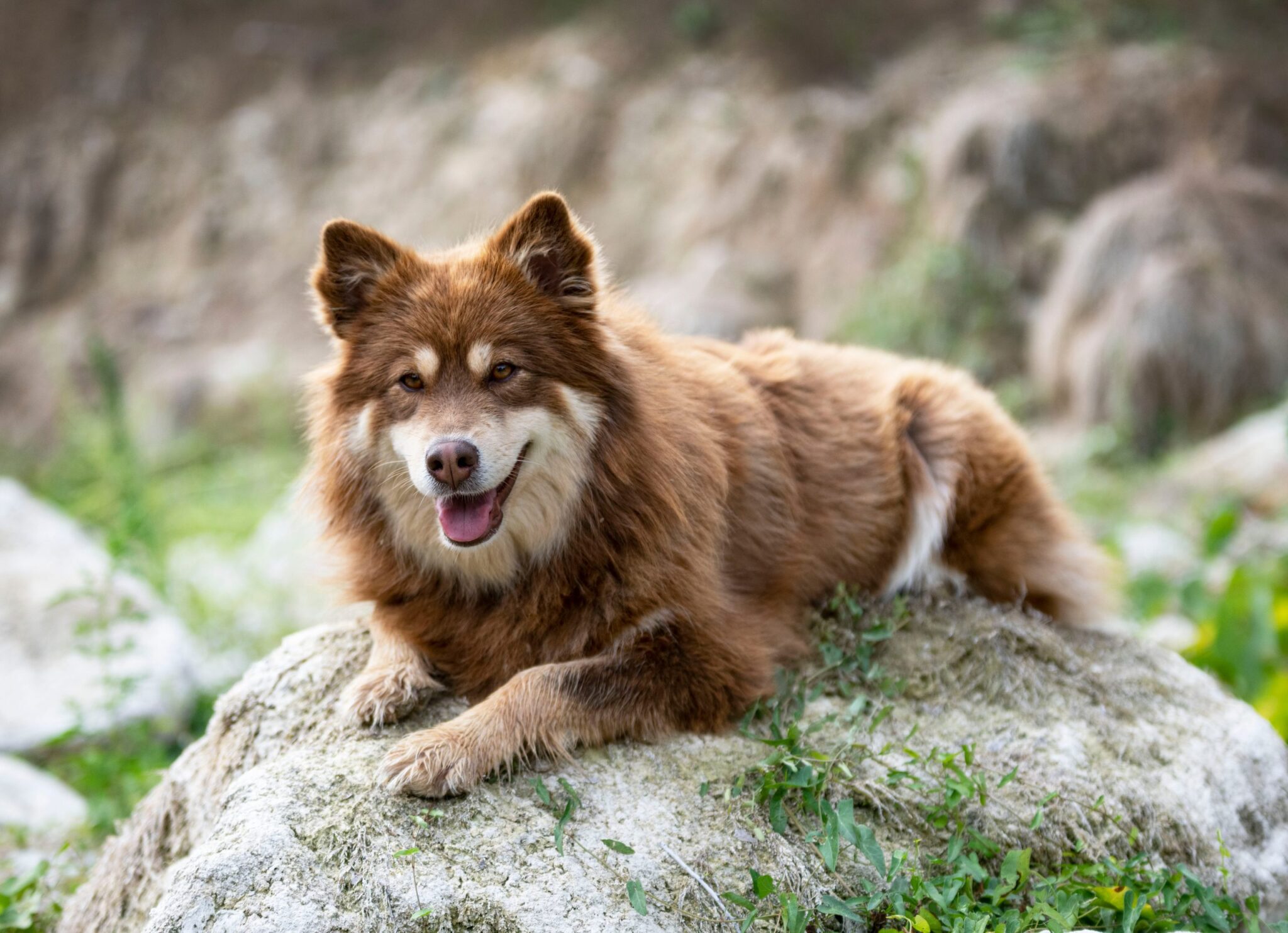Mushrooms are a common ingredient in many dishes, and as a dog owner, you might wonder whether it’s safe to share these fungi with your furry friend. While some mushrooms are safe and even beneficial for dogs, others can be highly toxic and potentially life-threatening. In this guide, we’ll dive into which mushrooms are safe, which should be avoided, and some tips on mushroom safety.
Wondering if cats can eat mushrooms, too? Check out this comprehensive guide to human foods cats can eat!

Can Dogs Eat Mushrooms?
The short answer is yes, but with significant caveats. While some mushrooms are safe for dogs to eat, many varieties found in the wild or even in your backyard can be toxic. Mushrooms found in grocery stores are generally (emphasis on generally) safe for dogs to eat, but wild mushrooms are a different story. Some can be very dangerous.
In a moment, we’ll go over which types are safe and which aren’t. First, though, I wanted to give you a little background on why I decided to write this post. If you’re a regular reader, you may have seen my Critical Immune Defense review (if you didn’t catch it, check it out when you have a chance, it’s a pretty awesome dog supplement). Mushrooms make up a good chunk of the active ingredients. I was a little worried at first because I thought that dogs couldn’t eat mushrooms at all. I called my vet for some clarification, did a little more research, and found that it’s only certain types that they can’t eat. Others are perfectly safe. On that note…
Types of Mushrooms Dogs Can Eat
Store-bought mushrooms that are safe for dogs include:
- White Button Mushrooms: These are the most common mushrooms found in grocery stores and are safe for dogs in moderation. They are low in calories and contain some essential nutrients.
- Portobello Mushrooms: Larger and more flavorful, Portobello mushrooms are also safe for dogs. They’re a good source of B vitamins and selenium.
- Shiitake Mushrooms: Known for their rich, umami flavor, shiitake mushrooms are not only safe for dogs but also offer immune-boosting properties thanks to their beta-glucans.
- Reishi Mushrooms: Often used in supplements, Reishi mushrooms have anti-inflammatory and immune-boosting benefits. They’re not typically eaten raw or cooked like other mushrooms but are sometimes included in dog supplements.
- Maitake Mushrooms: Also known as “Hen of the Woods,” Maitake mushrooms are safe for dogs and are believed to have anti-cancer properties.
- Cremini Mushrooms: These are essentially younger Portobello mushrooms and are just as safe for dogs. They offer similar nutritional benefits.
- Turkey Tail Mushrooms: Turkey Tail is another mushroom known for its immune-boosting and anti-cancer properties. According to Dr. Robert Silver, DVM, Turkey Tail mushrooms are rich in polysaccharides, both of which can help support the immune system and may be beneficial for dogs with cancer.
- Lion’s Mane Mushrooms: Known for their unique, shaggy appearance that resembles a lion’s mane, these mushrooms are rich in antioxidants and have neuroprotective properties. They are often used in supplements to support cognitive health and may help with conditions like anxiety and cognitive decline in older dogs. According to one study, “LM has potential for treating certain neurologic problems in animals. This mushroom could be considered in the support of nerve regeneration in dogs and cats with injuries, including radial and spinal nerve paralysis.”

Benefits of Safe Mushrooms for Dogs
When given safely and in moderation, some mushrooms can offer health benefits for dogs:
- Boosted Immune System: Mushrooms like Reishi and Shiitake are known for their immune-boosting properties due to their high beta-glucan content.
- Anti-Inflammatory Properties: Some mushrooms contain compounds that reduce inflammation, which can be beneficial for dogs with arthritis or other inflammatory conditions.
- Cancer-Fighting Properties: Certain mushrooms, like Maitake, have been studied for their potential anti-cancer effects due to their ability to enhance the immune response.
- Rich in Nutrients: Mushrooms are low in calories and contain essential vitamins and minerals, such as B vitamins, selenium, and potassium, which can support overall health.
Mushrooms Dogs Should Never Eat
While the above mushrooms are safe, the world of wild mushrooms is fraught with danger. Some mushrooms are highly toxic to dogs, and ingestion can lead to severe health issues or even death. Here are some mushrooms to avoid at all costs:
- Amanita Muscaria (Fly Agaric): Recognizable by its red cap with white spots, this mushroom is highly toxic to dogs. It can cause severe neurological symptoms, including seizures, tremors, and even death.
- Amanita Phalloides (Death Cap): As the name suggests, this mushroom is deadly. It’s responsible for most mushroom poisoning deaths in dogs and humans. Symptoms include vomiting, diarrhea, jaundice, seizures, and coma.
- Galerina Marginata: Often mistaken for edible mushrooms, these are extremely toxic. Ingestion can lead to severe liver damage and death.
- Gyromitra Species (False Morels): Although some people eat these after proper preparation, they are generally considered toxic. They contain a toxin that can cause severe gastrointestinal distress and neurological issues in dogs.
- Inocybe and Clitocybe Species: These mushrooms contain muscarine, a toxin that affects the parasympathetic nervous system, leading to symptoms like drooling, vomiting, diarrhea, and in severe cases, death.
- Lepiota (False Parasol): These mushrooms are often confused with edible varieties but are toxic and can cause liver failure in dogs.

Mushroom Safety Tips for Dog Owners
Given the risks associated with wild mushrooms, it’s crucial to follow these safety tips:
- Keep Dogs Away from Wild Mushrooms: If you walk your dog in areas where mushrooms grow, be vigilant. Train your dog to avoid eating anything off the ground unless you give the go-ahead. Better yet, use an invisible dog fence collar that allows you to set off-limits areas in your yard.
- Remove Wild Mushrooms from Your Yard: Regularly check your yard for mushrooms, especially during damp seasons, and remove any that you find. Even if it looks like one of the safe mushrooms for dogs, looks can be deceiving. Unless you are 100% confident that you know your shrooms, it’s just better to pretend that the ones growing in your yard are all dangerous.
- Stick to Store-Bought Mushrooms: When in doubt, only give your dog mushrooms that you would eat yourself. Even then, cook them plain, without added ingredients like garlic, onions, or butter, which can be harmful to dogs.
- Consult Your Veterinarian: Before introducing any new food, including mushrooms, into your dog’s diet, it’s always a good idea to consult with your veterinarian.
- Know the Symptoms of Mushroom Poisoning: More on that below.

Symptoms of Mushroom Poisoning in Dogs
Recognizing the symptoms of mushroom poisoning in dogs is absolutely crucial, especially if you live in a rural area like I do where your dog may encounter them more often. Early intervention can be lifesaving. The symptoms can vary depending on the type of mushroom ingested, but here are some common signs to watch for:
- Gastrointestinal Symptoms:
- Vomiting and Diarrhea: These are often the first signs of mushroom poisoning and can occur within minutes to hours of ingestion.
- Abdominal Pain: Dogs may show signs of discomfort, such as whining, pacing, or being reluctant to lie down.
- Excessive Drooling: Some toxic mushrooms cause increased salivation.
- Neurological Symptoms:
- Tremors and Seizures: These can occur with certain types of mushrooms, particularly those that affect the central nervous system.
- Staggering or Lack of Coordination: Your dog may appear unsteady on their feet or have difficulty walking.
- Hallucinations: Although difficult to recognize in dogs, some mushrooms can cause altered behavior or agitation.
- Liver and Kidney Failure:
- Jaundice: A yellowing of the eyes, gums, or skin, which indicates liver failure, can occur with certain highly toxic mushrooms like Amanita species.
- Increased Thirst and Urination: Signs of kidney distress, which may lead to more severe complications if not treated promptly.
- Lethargy and Weakness:
- Your dog may become unusually tired, weak, or unresponsive, indicating that the body is struggling to cope with the toxins.
- Coma and Death:
- In severe cases, particularly with highly toxic mushrooms like the Death Cap, the poisoning can lead to coma and death if not treated immediately.
If you suspect your dog has ingested a toxic mushroom, it’s essential to seek veterinary care right away. The quicker the intervention, the better the chances of a full recovery. Always bring a sample of the mushroom (if possible) to help the vet identify the type and determine the best course of treatment.
Conclusion
While dogs can eat certain types of mushrooms, extreme caution is necessary. Stick to safe, store-bought varieties, and never let your dog eat wild mushrooms. The potential risks far outweigh the benefits in those cases. If you’re considering adding mushrooms to your dog’s diet, consult with your veterinarian to ensure you’re making the safest choice. With the right precautions, mushrooms can be a healthy and beneficial addition to your dog’s diet.
Hi there! I'm Nicole, the editor-in-chief and one of the writers here at DogVills. I've been a dog owner for most of my adult life and a dog lover for much longer than that. I grew up with a wonderful German Shepherd named Jake, who I loved SO much that I named my son after him. When I'm not writing for DogVills or my own site, Pretty Opinionated, I love spending time with my teenager (when he actually lets me) and my Pharaoh Hound, Freya. I'm also an avid reader AND a total TV fanatic.




















 English (US) ·
English (US) ·